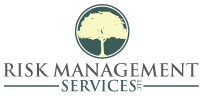Whether it’s a potential lawsuit that could bankrupt your business, or the possibility of an employee getting injured at work, managing risk is an essential task when you own and operate a business.
No matter how much preparation you do, or how safe you keep your work environment, there are always risks involved with doing business. Here is an overview to help you learn about managing risk, how to identify risk, and how to protect your business for the future.
What is Risk Management?
If you run or manage a business, you might be wondering what proper risk management really entails.
Risk management is the identification, evaluation, and prioritization of risks so that you can monitor, control, and reduce their probability and potential impact. Most business owners are so caught up with the daily operations of the business and don’t have the time to handle this, so they opt to hire reputable risk management services to ensure they are protected against a wide variety of scenarios.
This is a smart way to run your business, so you can focus your full attention on the day-to-day operational tasks of your business. If anything does come up, your dedicated risk management team will notify you right away.
Risks can be categorized into 3 main areas, being:
- Business Risk: The types of risks that are taken to maximize shareholder value and profits, like undertaking high-cost risks to launch a new product to gain higher sales.
- Non-Business Risk: The risks that are not under the business’ control, such as risks that come from political, economic, or environmental imbalances.
- Financial Risk: As the name suggests, these are risks that are directly related to the finances of the company and are usually due to instability in the financial markets caused by interest rates, currency fluctuations, stock prices, and more.
The Importance of Managing Risk
It’s important to have qualified risk managers attend to these risks for you, because if you wait too long and a negative event does occur, you could be faced with substantial and unexpected costs that disrupt your cash flow and revenue.
If someone gets injured on the job, this could be a potential major lawsuit. If you make a risky financial investment, and you aren’t aware of it in time, you could suffer significant financial losses.
While risk assessment and risk management are tasks you could potentially do yourself, it is very helpful to work with a team whose specific job is to keep you and your business secure and safe from a wide variety of risks, and plan for new risks as your business grows and evolves.
How Can You Identify Risk?
Here are a few key things you should consider in order to properly identify risks for your business.
EXPECT THE BEST, PLAN FOR THE WORST:
When making an investment, while it’s good to hope for the best, it’s advised to expect the worst. Anyone who launches a new product or service wants it to be a hit, but it is important to have contingency plans in case the investment does not working out or delivers a negative return.
Do Your Research & DUE DILIGENCE:
Make sure you are conducting detailed research on potential business partners or any individuals you are investing in. You can listen to their story, hear them out, and get to know them on a personal level, yet it is still vitally important to make sure that you are doing your own research, as well as checking references. Anyone can tell a lie or spin the truth, so make sure to do your due diligence.
CONNECT WITH a Professional:
Even if you prefer to do the work yourself, it might be helpful to at least have a conversation with a risk management service on best practices and key things to keep in mind. This is the case especially if you are having doubts about a certain investment or segment of your business. A few conversations with a team of qualified professionals can often provide trustworthy, actionable information that you can count on.
Understand How Risks Can Affects You:
Once you’ve identified the risks your business could potentially face, it is important to quantify them and determine which risks are potentially the most severe, so you can plan accordingly. For example, a massive lawsuit could be a major financial issue, so it makes sense to devote more time and energy to creating a contingency plan to ensure you are well protected.
TO SUM THINGS UP
If you have the time and energy to create a risk management and mitigation plan on your own, this is definitely an option. However, it is definitely advantageous to work with a reputable risk management firm to ensure your business is protected against a wide variety of scenarios with a robust risk management plan.


